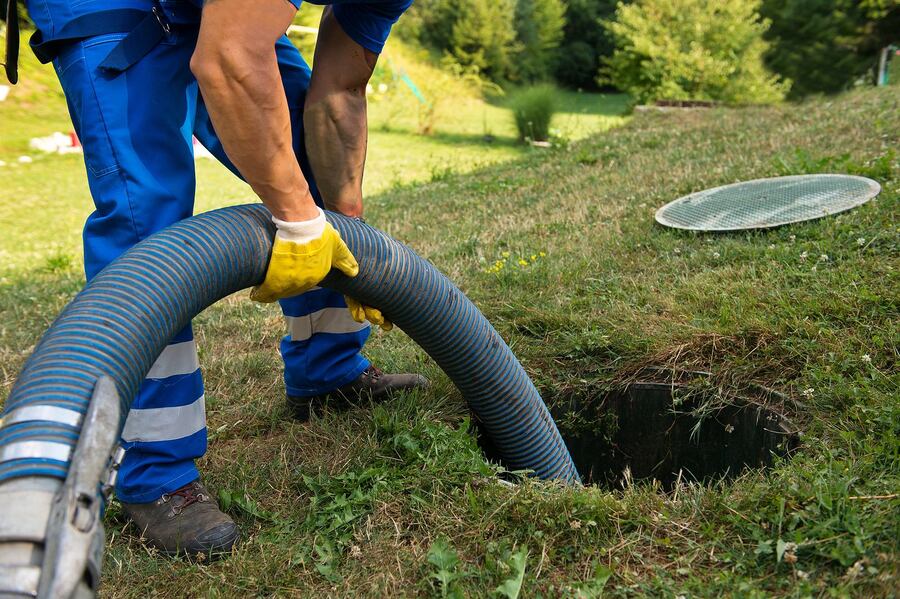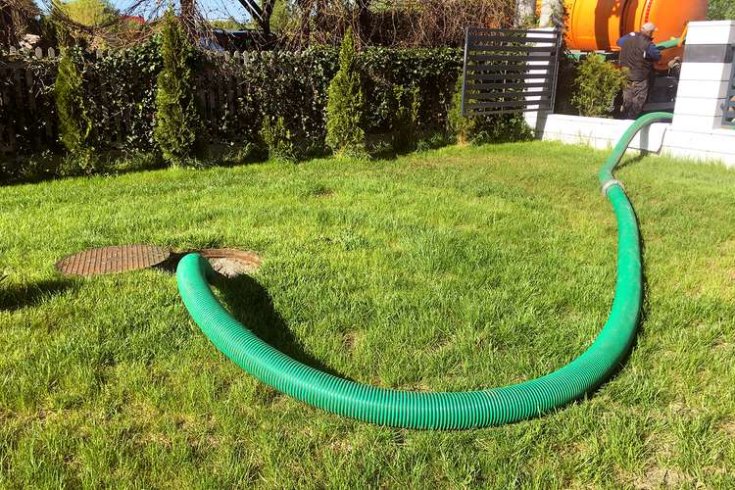
30
Your septic system might be hidden, but you need it to maintain a healthy household. Yet, many homeowners compromise its efficiency by pouring household chemicals down the drain. At Charlotte Septic Pros, we’ve seen firsthand how common cleaning products and chemicals can create chaos in septic systems. Keep reading to find out how your septic system works, which household chemicals pose risks, and how to protect your system for years to come.
Your septic system is a self-contained wastewater treatment solution that separates solids from liquids and allows for the safe breakdown of organic waste. The system includes a septic tank and a drain field. Wastewater flows into the septic tank, where heavy solids settle at the bottom to form sludge and lighter materials, like grease, float to the top to form a scum layer. Bacteria in the tank break down organic matter and treat water before it flows into the drain field for further filtration. For this delicate process to work effectively, the bacteria in your septic tank need a stable and healthy environment. Introducing harsh chemicals into your drains can disrupt this balance and diminish the system’s ability to treat wastewater. If this happens, you may require frequent septic cleaning or a full system replacement.
Many everyday products that seem harmless can actually damage your septic system. Here are some common culprits:
Over time, improper chemical disposal can cause severe issues for your septic system. The most common long-term effects include:
Proper disposal of household chemicals is important. Here’s how to do it responsibly:
Prevention is best when it comes to septic system maintenance. Here are some steps you can take to protect your system:
Sometimes, issues with your septic system can arise, no matter how much you focus on maintenance. Here’s when it’s time to call a professional septic service:
If you want to keep your septic system in great condition, call Charlotte Septic Pros. Our team offers reliable septic pumping, cleaning, and repair services for local property owners. Let us help you protect your home, your wallet, and the environment. Contact our team to schedule an appointment.

28
Why Is Sewage Backing Up into My Tub? When wastewater starts rising into your bathtub, it’s more than just unpleasant—it’s…
Read more
22
Can Bacteria Additives Eliminate the Need for Pumping? If you own a home with a septic system, you’ve probably seen…
Read more
12
A single slow drain in your home can feel like a minor inconvenience. Maybe the sink takes a little longer…
Read more
05
Are Slow Drains a Septic Issue or Just a Clog? Slow drains are one of those household problems that start…
Read more
02
What Septic Service Techs See That Homeowners Miss Most homeowners only think about their septic system when something goes wrong.…
Read more
21
Simple Habits That Protect Your Septic System A well-functioning septic system does its job quietly, but the moment something goes…
Read more
14
Pump Now or Pay Later: The Real Cost of Skipping Maintenance A properly functioning septic system is easy to forget…
Read more
11
Why Your Septic System Always Acts Up at the Worst Time Homeowners often feel that septic problems strike at the…
Read more
04
Early Warning Signs Your Septic Tank Needs Pumping For homeowners who rely on a septic system, routine maintenance is not…
Read more
29
Why Does My Septic System Smell Fine One Day and Terrible the Next? If you own a home with a…
Read more